The Peninsula
Where do Biden and Trump Voters Stand on U.S.-Korea relations?
Published October 29, 2020
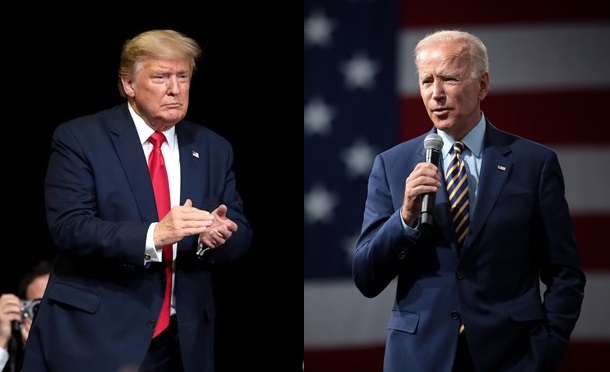
By Juni Kim
Next week’s U.S. presidential election has, to put it mildly, significant implications for the future of U.S.-Korea relations. The Trump administration’s aggressive approach to rethinking U.S. alliances has unnerved longstanding allies like South Korea. The last four years saw the renegotiation of the U.S.-Korea Free Trade Agreement, U.S. demands for South Korea to pay more for military costs, and Trump’s push for withdrawing U.S. troops stationed abroad. Stalled peace talks with North Korea also underline the continuing danger of North Korea’s increasingly capable missile and nuclear arsenal.
To understand where American voters stand on important issues on U.S.-Korea relations, KEI commissioned a study by YouGov that surveyed 1,064 American adults on August 26th to the 31st. Respondents were asked both who they voted for in the 2016 presidential election and who they would likely vote for in next week’s election. The results show that despite a split response among likely Biden and Trump voters on approving the Trump administration’s overall handling of South Korea and North Korea, there is clear agreement by American voters on specific policy issues like North Korea’s denuclearization and stationing U.S. troops in South Korea.
When asked on approving or disapproving of the current administration’s handling of relations with North Korea, 70% of likely Biden voters predictably disapproved while 69% of likely Trump approved. The split is similar for respondents who voted in the 2016 presidential election, with 72% of Democratic candidate Hillary Clinton voters who disapproved and 74% of 2016 Trump voters who approved. On approving or disapproving of the administration’s handling of relations with South Korea, 22% of likely Biden voters approved and 65% of likely Trump voters approved.
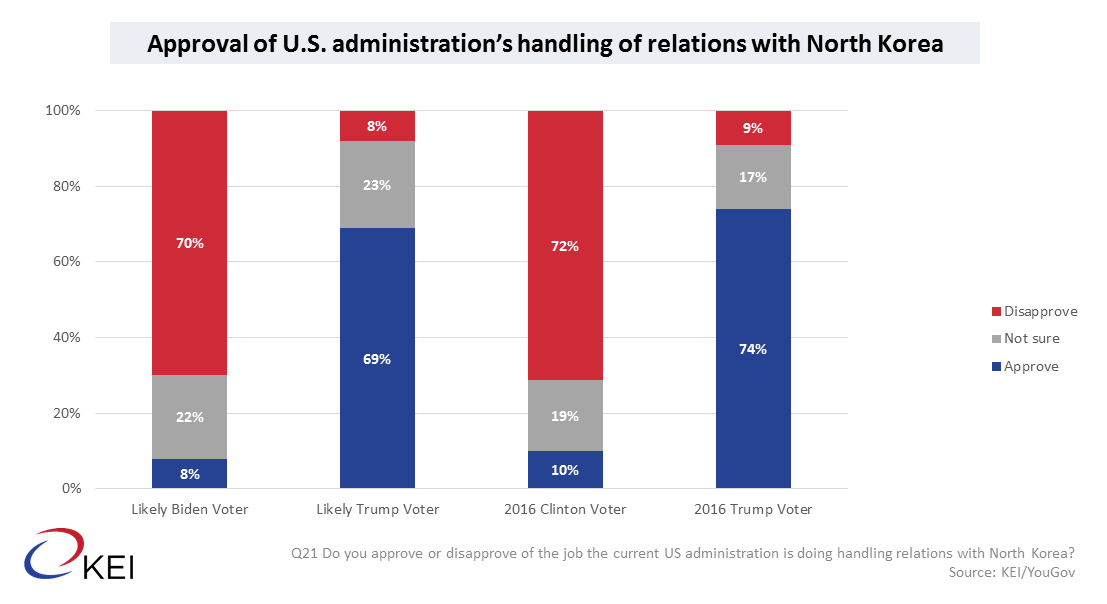
Despite the wide split on the administration’s overall approach to North Korea and South Korea, U.S. voters generally agree on how important it is for North Korea to give up is nuclear arsenal. Likely Biden and Trump voters responded nearly identically with 89% and 88% respectively believing it is very important or important. There is some divergence when voters were asked about the U.S. providing humanitarian assistance to North Korean citizens. More likely Biden voters (60%) are in favor of providing assistance than likely Trump voters (47%), though there are still more Trump voters approving of assistance than disapproving (25%).
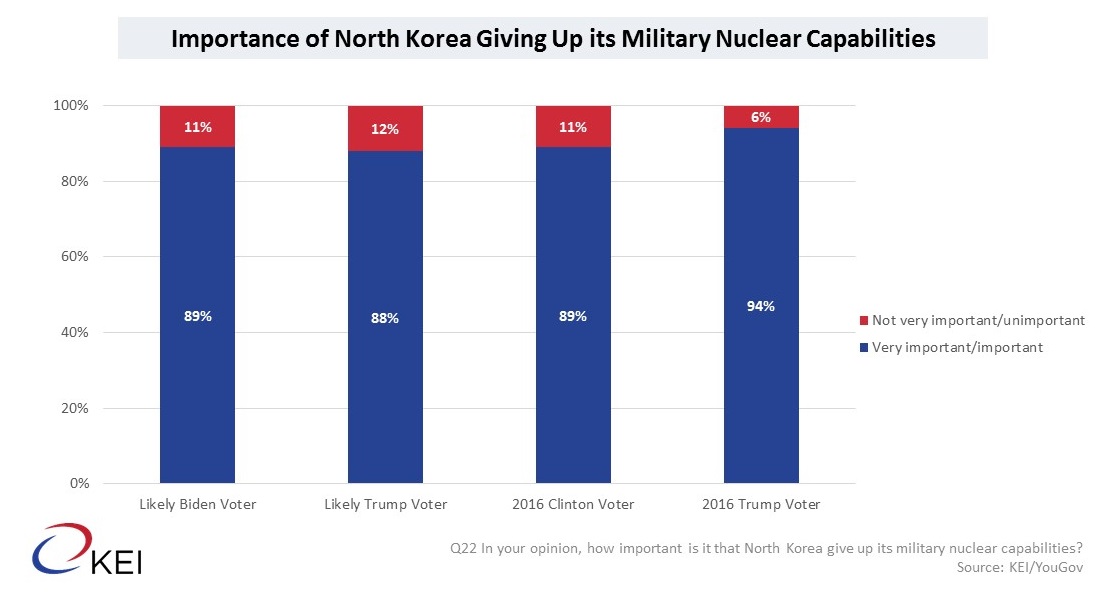
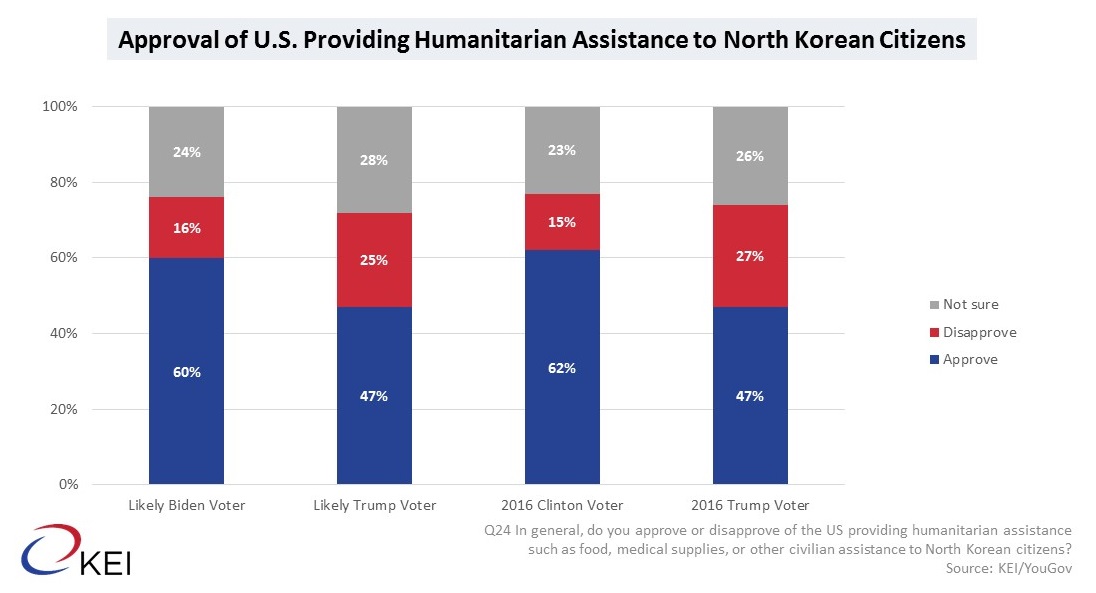
U.S. voters also show general agreement on the benefits of U.S.-South Korea trade, the U.S.-South Korea military alliance, and support for U.S. troop presence in South Korea. 74% of likely Biden voters and 67% of likely Trump voters believe that U.S. trade with South Korea is beneficial for the United States, and 68% of both sets of voters believe the U.S.-South Korea military alliance is in U.S. national security interests. Despite Trump’s critical view of U.S. troop presence abroad, including in South Korea, more likely Trump voters (66%) are in favor of maintaining or increasing troop presence in South Korea than likely Biden voters (59%).
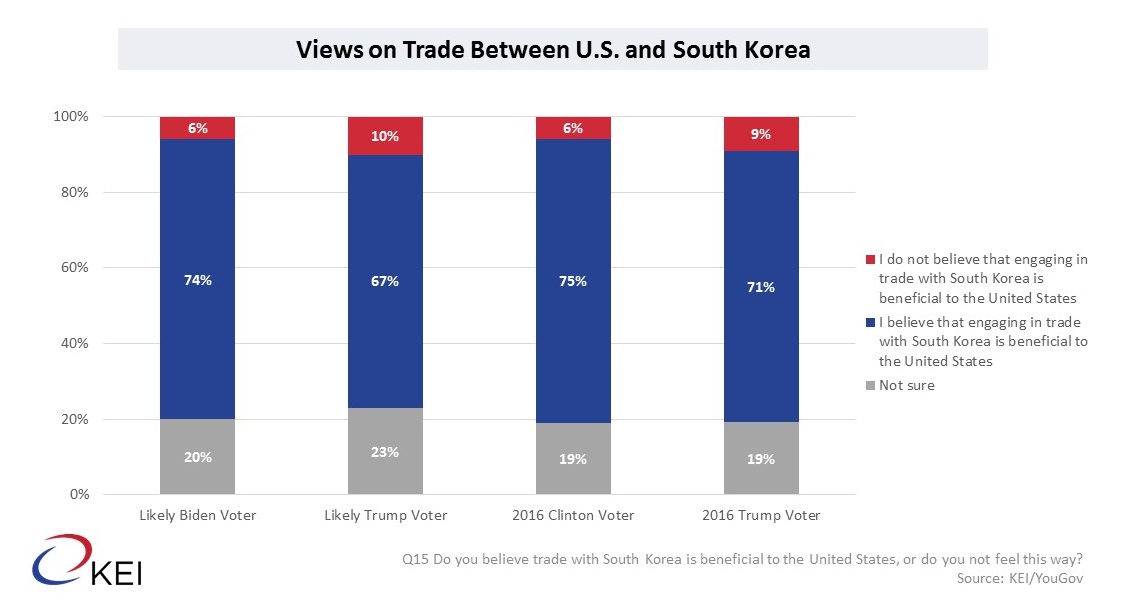
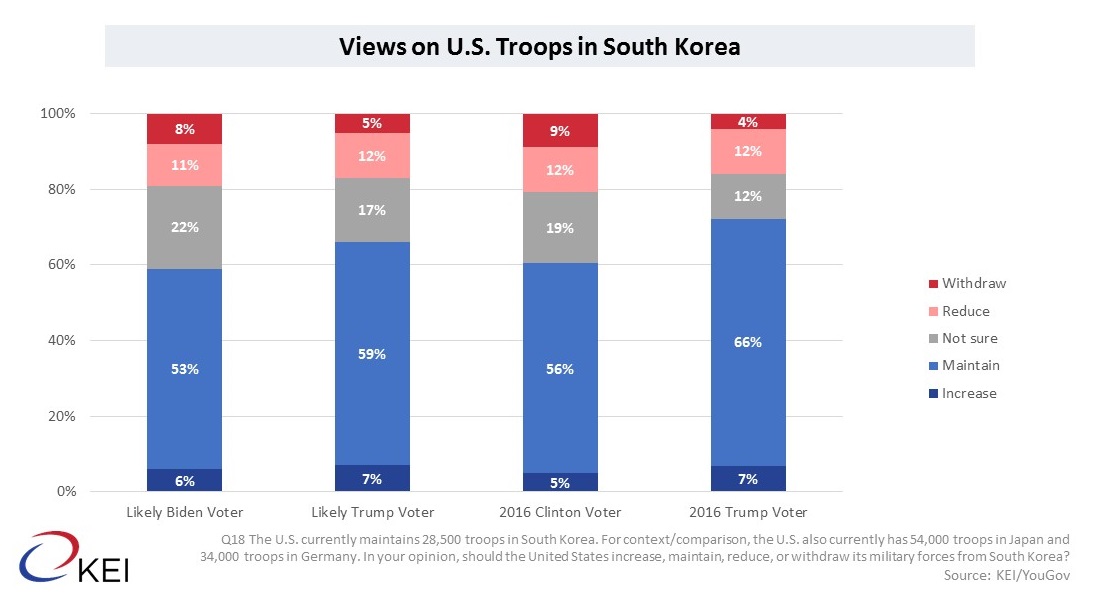
Even in the current divisive political climate, the results reflect an understanding by Americans regardless of voter preference of the importance of the U.S. commitment to South Korea and the seriousness of the North Korean threat. While voters may be divided on Trump’s own performance, the public consensus should be noted by the next administration and how it approaches relations to the Korean peninsula.
Juni Kim is the Senior Manager for Operations and Technology at the Korea Economic Institute of America (KEI). The views expressed here are the author’s alone.
Graphics created by Juni Kim. Cover image created by Juin Kim from photos on Gage Skidmore’s photostream on flickr Creative Commons.
